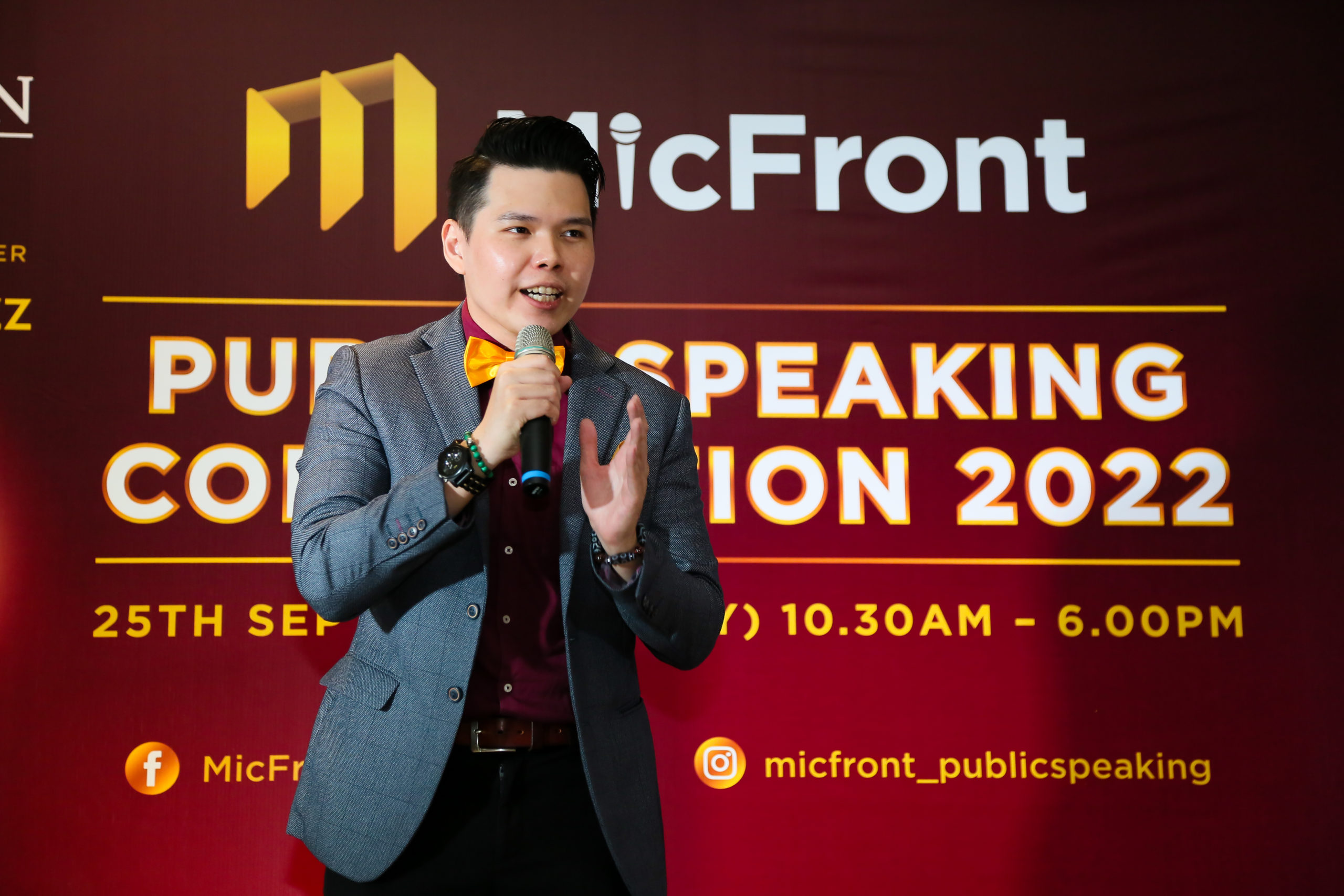Why does my mind "Go Blank" when presenting?
Why does my mind "Go Blank" when presenting?
If you’re reading this right now that means that you are facing one of the most common challenges that people go through. Which is our mind going blank when we give a presentation. To understand how to overcome this challenge we need to identify what is main cause.
After working with many clients such as Entrepreneurs, CEO’s, Business Leaders, Influencers, Beauty Pageants, and many more I realize that there are several factors that makes our mind go blank when presenting.

1. Speaking too fast
Sometimes we tend to speak faster than what our brain is able to compute. We then fumble over our words, get nervous, and ultimately leading to our minds going blank.

2. Seeing the audiences reaction
Let’s be honest. How the audience reacts to our presentation can affect us severely. Imagine doing a stand up comedy, and yet no one laughs at any of your jokes. Wouldn’t that make us feel nervous, and just an emotional wreck? This affects our psyche, and results in our mind going blank.

3. The lack of preparation or familiarity
The lack of rehearsals for our presentation, or not visiting the venue in advance to know our speaking area to familiarize ourselves will cause us to go blank. So the question to ask yourself is… Do you rehearse enough? and did you try to familiarize yourself with the place?
Can you resonate with some of the main causes stated above? Fret not, because there’s always a solution to a problem. Let me introduce two methods to overcoming this challenge.
1. Internal Reflection
Let’s face it the feeling of nervousness is one of the biggest causes of our mind going blank. We need to address and reflect upon our internal state of being to fully understand why we feel that nervousness in the first place.
Ask yourself the following questions:
- What am I truly afraid of?
- What is the worse that could happen?
- Is what you said for question 2, true?
- What evidence do you have to support question 3?
- If I am the audience, what do I want for the speaker?
- Knowing this, what can I do to overcome this feeling of nervousness?
2. Familiarization
One of the biggest fears that people have is the unknown. Hence, getting familiar with something definitely helps us be more at ease. The question now is what do we get ourselves familiar with?
1. Presentation
This means you go through your presentation again and again until you are comfortable with the information that you are going to present. This doesn’t mean knowing your presentation word for word, rather how much you have internalized this presentation. Even if things go wrong you’d know how to continue on.
2. Place
Visit the venue of your presentation early. What I normally do is either visit it 1 day prior or even 1 hour prior to my speaking segment. This helps me to understand where is my speaking area, how comfortable I am with it, and if there are the necessary tools available for me to use. Meaning, is there a whiteboard, projector, clicker, etc. Get to know the place early!
3. People
Now it’s probably close to your presentation time so what you’d want to do is to meet and greet the people who are going to be your audience (if possible). A short introduction about yourself like “Hi, my name is bob, and I’ll be the next speaker. Nice to meet you, what’s your name?” Doing this helps you bridge the gap between speaker and audience. Now they see you as someone they have familiarized with, and so would you.
1. Internal Reflection
Let’s face it the feeling of nervousness is one of the biggest causes of our mind going blank. We need to address and reflect upon our internal state of being to fully understand why we feel that nervousness in the first place.
Ask yourself the following questions:
- What am I truly afraid of?
- What is the worse that could happen?
- Is what you said for question 2, true?
- What evidence do you have to support question 3?
- If I am the audience, what do I want for the speaker?
- Knowing this, what can I do to overcome this feeling of nervousness?
2. Familiarization
One of the biggest fears that people have is the unknown. Hence, getting familiar with something definitely helps us be more at ease. The question now is what do we get ourselves familiar with?
1. Presentation
This means you go through your presentation again and again until you are comfortable with the information that you are going to present. This doesn’t mean knowing your presentation word for word, rather how much you have internalized this presentation. Even if things go wrong you’d know how to continue on.
2. Place
Visit the venue of your presentation early. What I normally do is either visit it 1 day prior or even 1 hour prior to my speaking segment. This helps me to understand where is my speaking area, how comfortable I am with it, and if there are the necessary tools available for me to use. Meaning, is there a whiteboard, projector, clicker, etc. Get to know the place early!
3. People
Now it’s probably close to your presentation time so what you’d want to do is to meet and greet the people who are going to be your audience (if possible). A short introduction about yourself like “Hi, my name is bob, and I’ll be the next speaker. Nice to meet you, what’s your name?” Doing this helps you bridge the gap between speaker and audience. Now they see you as someone they have familiarized with, and so would you.
I know it’s a scary process to overcome the fear and nervousness when presenting, but remember that your audience doesn’t want to see you fail. More often than you know, they want you to succeed. So before giving your next presentation commit to having an Internal Reflection and remember to Familiarize yourself. All the best, I know you’d do superbly well!
If you’re looking to discover how to take your confidence, and presentation skills to the next level then click on the button below to claim your free speaking assessment with us!

